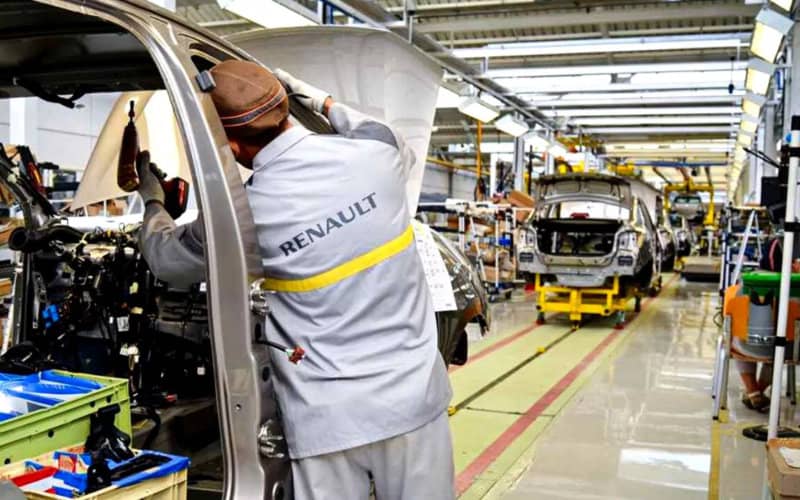Morocco Emerges as Automotive Hub, Outpacing Algeria in Industry Growth

While Morocco progresses in the automotive industry and continues to attract French manufacturers, Algeria has an almost non-existent industry.
Several French manufacturers have set up in Morocco in recent years. Since 2012, Renault has had a large factory in Tangier where it produces several vehicles. In total, 312,000 vehicles were assembled last year. It is the largest factory of the French group in the world (7,000 employees), entirely dedicated to its low-cost brand Dacia. The French manufacturer plans to manufacture the Jogger family estate there from next June. It also now manufactures the Bento and Duo electric quadricycles for the Mobilize brand. Its Dacia Sandero, the cheapest on the market (12,990 euros), is also the best-selling car in Europe.
Besides Tangier, Renault has also established itself in Casablanca. With a smaller site, it produces 100,000 units there. The French manufacturer is also considering creating an engineering center, which is currently starting with about a hundred people in Tetouan, intended to grow. "80% of our production in Morocco is exported to Europe, mainly France, Spain, Italy and Germany," explains Christophe Dridi, industrial director of Dacia.
Stellantis also likes Morocco. In 2019, the car manufacturer inaugurated its factory in Kenitra. Last year, 175,000 vehicles, including Peugeot 208s for the Old Continent, but also electric microcars like the Citroën Ami, were produced there. And the Franco-Italian-American group wants to go far: it plans to invest 300 million euros to increase its capacity to 400,000 vehicles per year. "Morocco is a whole ecosystem with suppliers established on site," insists Christophe Dridi.
Why is Morocco the destination for these manufacturers? "The value of parts produced in Morocco between manufacturers and suppliers represents about 65% of the manufacturing cost for both Renault and Stellantis," reports Challenge. French manufacturers are also attracted by hourly labor costs of 5 to 6 euros, while in France, these same costs exceed 45 euros.
These French manufacturers have not had the same luck in Algeria. Renault’s project to establish a small factory ended in failure. The arrival to power of Abdelmadjid Tebboune dashed the hopes of the French manufacturer. The successor of the deposed president accused the manufacturers of merely "inflating tires" in their local factories. After resuming sporadic production, Renault had to close its doors in 2023 due to government obstacles. The French company has "filed a case to be able to restart, but we have no news," says Christophe Dridi.
In Algeria, Stellantis is doing better by implementing a successful strategy. "The group has put forward its Fiat brand, politically more acceptable than Peugeot and Citroën, whose models are produced in neighboring Morocco, which is despised," reports the same source. Last February, the Italian brand managed to launch the Fiat Doblo Panorama leisure activity vehicle, assembled in Tafraoui, near Oran. In less than 48 hours, Fiat Algeria found itself with tens of thousands of requests to purchase this model, reports the French-language news site TSA.
However, the Franco-Italian-American group cannot meet the demand, as Algeria has an almost non-existent industry. It was only able to assemble 18,000 Fiats last year at this site opened in late 2023, which employs 1,650 people. "With a very low rate of local integration - local purchases represent 10% of the cost - due to a lack of suppliers, unlike Morocco," notes the publication, concluding that "in the automotive industry, the gap between Rabat and Algiers remains abyssal."
Related Articles
-

Currency Scandal Rocks Morocco: Elite Businessmen and Officials Implicated in Suspicious Transactions
22 August 2025
-

French Tourism Shifts: Domestic Travel Surges as Foreign Destinations See Decline
22 August 2025
-

Morocco’s Hidden Real Estate Tax Trap: Sellers Face Shock Bills After Property Deals
21 August 2025
-

Morocco Dominates MENA Tourism: 4 Leaders Ranked Among Top 100 Influencers
21 August 2025
-

French Vacation Tax Audit Rumor Debunked: Viral TikTok Claim Sparks Outrage
21 August 2025